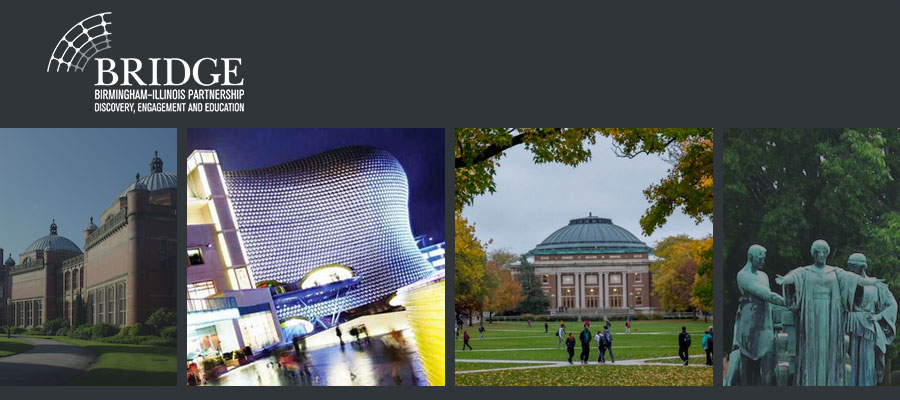The University of Birmingham and University of Illinois at Urbana-Champaign have a strategic partnership and are jointly recruiting for an exciting new fellowship initiative, the Birmingham-Illinois BRIDGE Fellowship programme, to recruit top postdoctoral researchers in six identified areas, including Cultural Heritage, Tourism and Economic Development.
BRIDGE Fellows will have 3 years with protected time for high-quality research before assuming a normal academic lecturer (equivalent to assistant professor) post at UoB. This will allow outstanding, high potential, early-career researchers of any age to establish themselves as rounded academics who will go on to make a full and excellent contribution to research, teaching and academic citizenship. BRIDGE Fellows will also develop their teaching experience, including PhD supervision, although these responsibilities will be limited to protect research time. Fellows will not be expected to contribute substantively to academic administration during the term of their Fellowship, although they will be expected to engage as part of the academic community. The BRIDGE Fellowship will begin September 2016 with the first and third years spent at UoB and the middle year at Illinois.
The BRIDGE Fellowship in Cultural Heritage Studies builds on strong existing collaborative research and cooperative educational activities in this broad, multi-disciplinary area. The successful applicant will work in the Ironbridge International Institute for Cultural Heritage (IIICH) at UoB and the Collaborative for Cultural Heritage Management Policy (CHAMP) at Illinois. The BRIDGE Fellow will enhance existing academic strengths at both universities and contribute to the growing culture of collaboration and interdisciplinarity that exists on both campuses.
Specifically the successful Fellow will be expected to define and develop research into how cultural heritage can contribute to the revitalisation of local communities. In both urban and rural environments, impacted by social and economic change – de-industrialisation, shifts in agricultural practices, in and out-migration etc. – cultural heritage, configured in both its tangible and intangible forms, has increasingly been viewed as a resource to aid regeneration and revitalisation of local communities with varying degrees of success. Through working with CHAMP and IIICH researchers the Fellow will further develop this field in both a national and international context. The Fellow will also be expected to contribute to and further develop teaching and PhD supervision and opportunities related to cultural heritage through the well-established programmes on both campuses.
